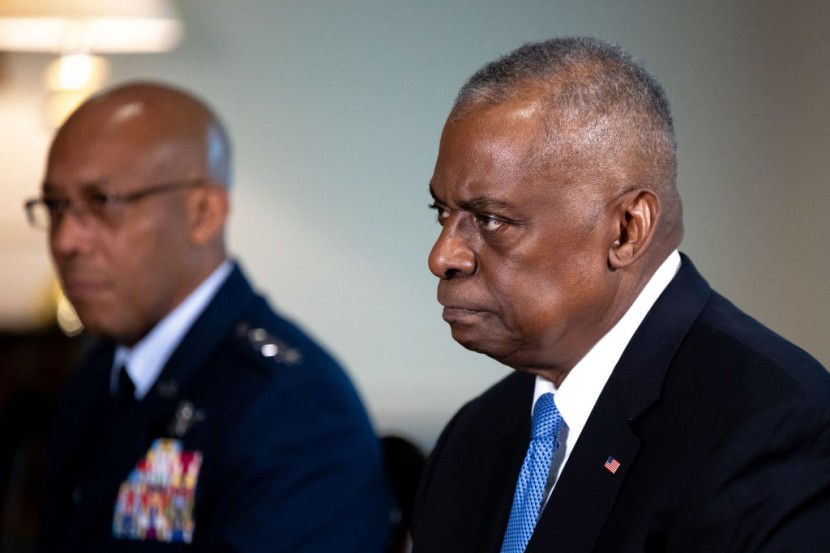After arriving in Beirut on Friday, Iran's foreign minister swore to continue backing the extremist Hezbollah organization, claiming that Lebanon's security impacts Iran's and the area's safety.
Members of the Palestinian Islamic Jihad, Hamas, and Hezbollah, the militant Palestinian organization, greeted Hossein Amirabdollahian. Iran, a major sponsor of extremist organizations, continues to appeal to the United States to put sanctions on Israel to halt its Gaza Strip attack, as per to ABC News.
Iran Vows Support for Hezbollah

A spokesperson for Ashab al-Kahf, a member of the Islamic Resistance in Iraq coalition, conveyed to Newsweek a firm stance regarding potential retaliation. The Ashab al-Kahf representative underscored the group's preparedness for strategic responses, citing influential Iraqi political figures, Sheikh Qais al-Khazali and Haj Hadi al-Amiri, who have pledged support for the expulsion of foreign forces.
The spokesperson emphasized Ashab al-Kahf's proactive approach to potential escalations, highlighting its readiness to confront challenges beyond immediate circumstances. The group's commitment to meticulous planning ensures readiness for any future developments, with a firm warning that they will meet aggression with an equivalent response.
Ashab al-Kahf, a Shiite Muslim militia, operates within a broader network opposed to Sunni insurgents and US military presence in Iraq. The group's name, "Companions of the Cave," holds historical significance, referencing a tale of resilience against persecution found in religious texts.
While established militias like Kataib Hezbollah and the Badr Organization have clearer origins, Ashab al-Kahf's emergence in 2019 lacked transparent leadership or structure. However, it quickly asserted its presence through attacks on US military targets following significant events such as the killings of Iranian General Qassem Soleimani and Iraqi Deputy Chief Abu Mahdi al-Muhandis in 2020.
Despite debates over its ties to other militias, Ashab al-Kahf openly aligns with the Islamic Resistance in Iraq coalition. This alliance, formed in response to the conflict between Israel and Hamas in Gaza, has intensified attacks on US forces in Iraq and Syria, according to Newsweek.
Read Also: South Africa's ANC Suspends Jacob Zuma Amid Deepening Divisions Ahead of National Elections
US Airstrikes Prompt Calls for Troop Withdrawal
The escalation of US airstrikes, including the recent assassination of Kataib Hezbollah commander Abu Baqir al-Saadi, has exacerbated tensions between Washington and Iraqi militias, prompting condemnation from Baghdad for unilateral actions. Iraqi Prime Minister Mohammed Shia al-Sudani has urged for a timeline for the withdrawal of US troops, although the Pentagon remains committed to bilateral security agreements.
Iran, while denying direct control over allied militias, has supported calls for the expulsion of US forces from Iraq and the wider Middle East. Iranian officials condemned the US drone strike as state terrorism, attributing it to American support for Israel.
In response to the strike, US military officials have initiated investigations into security failures, attributing the success of the attack to probability rather than sophisticated tactics. The strike's aftermath has seen a series of retaliatory actions by the US, raising concerns about the effectiveness of current strategies in pressuring Iran.
While some officials warn against an increase in tensions, critics of the Biden administration's response call for harsher sanctions against Tehran. The endless cycle of violence continues in spite of pleas for moderation, reflecting the intricacy of regional dynamics and the difficulties of setting up enduring peace, CNBC News reported.
Related Article: South Africa Believes Israel Is Ignoring ICJ Ruling








